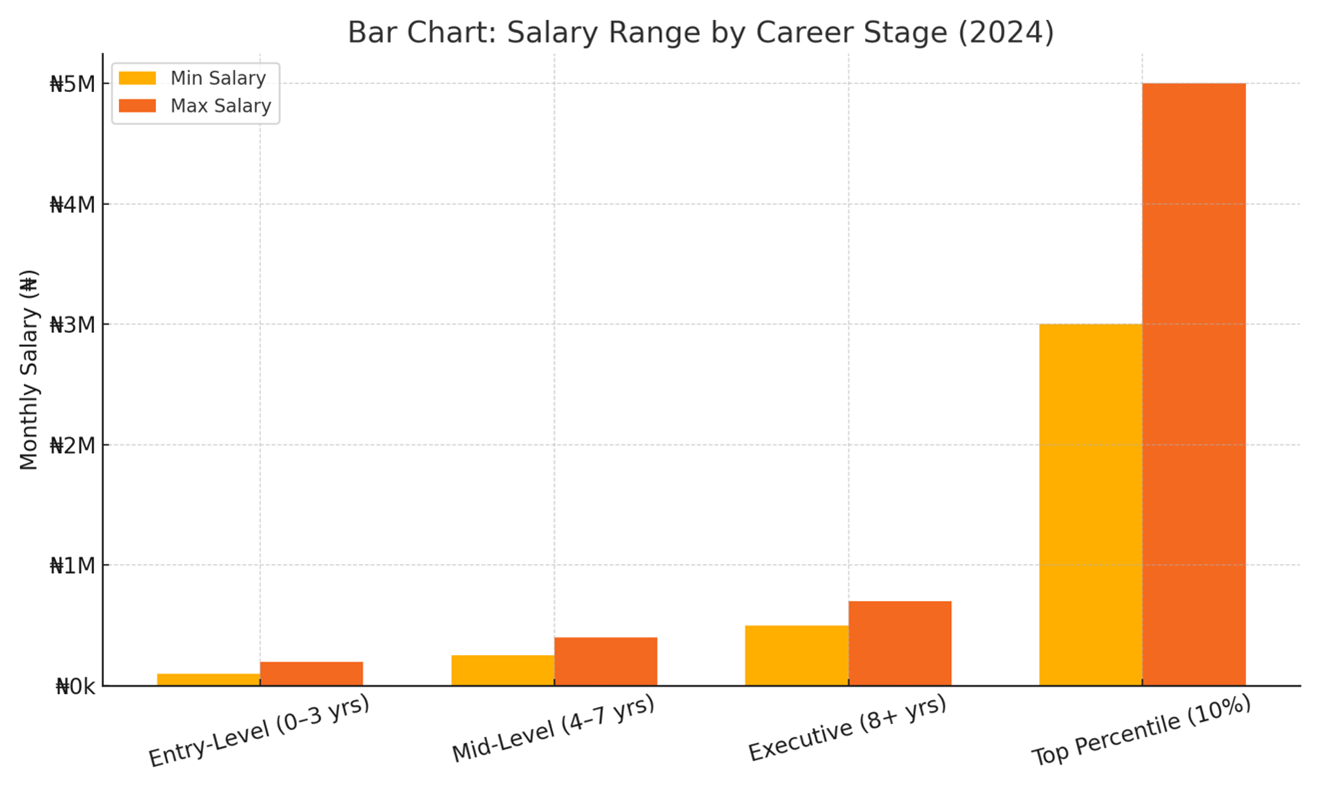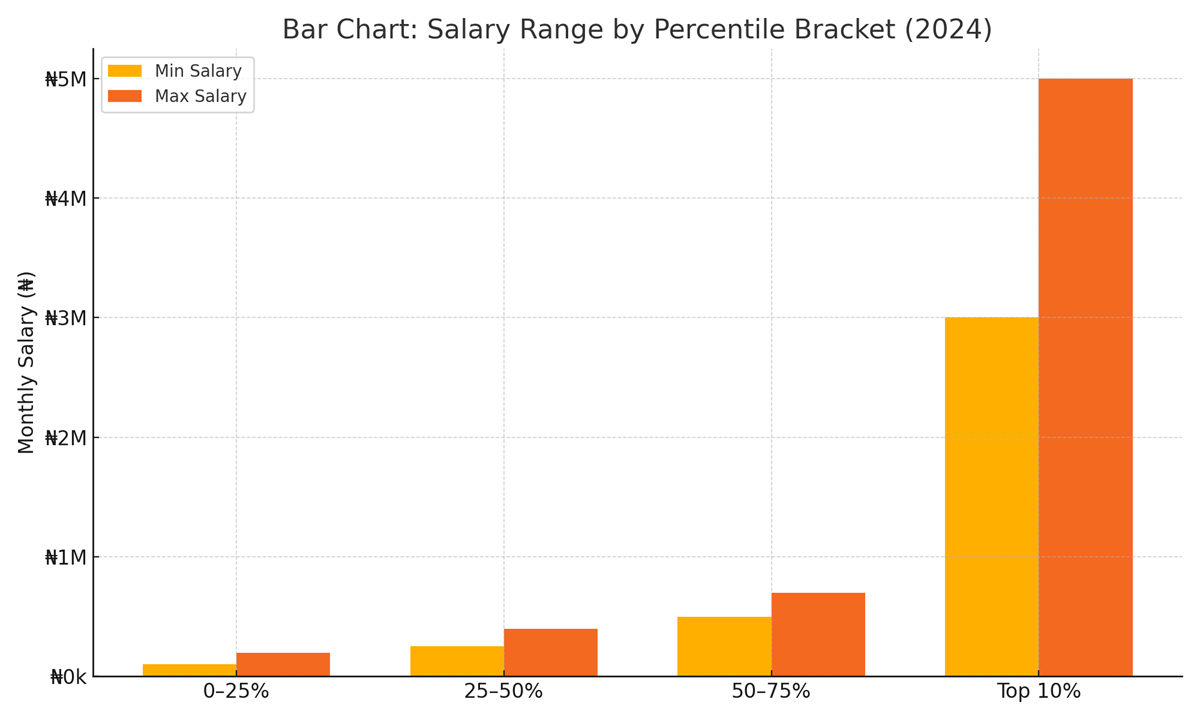In today’s volatile global marketplace—where inflation spikes, port congestions, foreign exchange turbulence, and geopolitical instability have upended business as usual—companies are under immense pressure to stay competitive. Behind the scenes of profitability and operational resilience is a strategic powerhouse too often underestimated: the Supply Chain Manager.
Many still associate supply chain work with warehousing or basic logistics. But in the last three years—between 2022 and 2024—this role has transformed into one of the most consequential in the corporate hierarchy. Those at the top of their game now earn between ₦3 million and ₦5 million monthly in Nigeria, and for good reason: they are the architects of continuity, efficiency, and enterprise value.
More Than a Role- A Strategic Investment
Nigeria’s economy has had a turbulent ride in recent years. From post-pandemic supply chain shocks to currency devaluation and global shortages, companies have had to reinvent their operations just to survive. Amid this chaos, Supply Chain Managers have emerged as key players in ensuring business continuity and adapting systems to meet rapidly shifting demands.
These professionals are not mere functionaries—they are economic stewards. They optimize procurement strategies, reduce logistics costs, predict disruptions, and drive customer satisfaction. Their work often means the difference between a thriving business and one crippled by delay or waste.
Here’s why the ₦3–₦5 million monthly compensation is not just justified, but imperative:
- Strategic cost optimization: Supply Chain Managers routinely identify inefficiencies and save companies hundreds of millions of naira by reducing procurement overheads and negotiating favorable vendor terms.
- Disruption management: They anticipate and mitigate risks—from shipping delays to raw material shortages—ensuring continuity when others falter.
- Digital transformation leadership: Today’s supply chain leaders leverage AI, blockchain, IoT, and data analytics to forecast demand, reduce waste, and improve speed.
- Customer satisfaction: Timely delivery and stock availability boost revenue and enhance brand loyalty—both of which are directly tied to effective supply chain orchestration.
The Talent Gap and Global Competition for Expertise
It’s one thing to recognize the value of the role—but what makes top-tier professionals so rare? The answer lies in the depth of skill and strategic foresight required to succeed.
Few professionals possess the perfect mix of operational experience, financial acumen, technological proficiency, and leadership. Certifications like APICS CSCP, Six Sigma, CIPS UK, and CILT UK are now baseline expectations for those at the top. Yet Nigeria’s talent pool remains constrained. As companies scale across Africa and beyond, demand for top-tier supply chain leaders has outpaced supply creating a bidding war for the best.
A Data-Driven Ascent: The Salary Ladder in Nigeria
A compelling aspect of the supply chain field is the clear, data-backed trajectory from entry-level to elite compensation. The original report provides illustrative salary bands across three career stages. Let’s unpack them:
- Entry-Level (0–3 Years)
- Monthly Salary: ₦100,000 – ₦195,000
- Percentile: Bottom 25%
- Focus: Basic execution, inventory updates, warehouse logs, task-specific operations
- Insight: This is the foundational phase, low pay but high learning potential.
- Mid-Level (4–7 Years)
- Monthly Salary: ₦250,000 – ₦400,000
- Percentile: 25th–50th percentile
- Focus: Vendor coordination, process improvement, tactical decision-making
- Insight: At this stage, the value-add becomes clear. Professionals begin to create measurable impact, justifying increased compensation.
- Advanced / Executive (8+ Years)
- Monthly Salary: ₦500,000 – ₦700,000+
- Percentile: 50th–75th percentile
- Focus: Strategic planning, P&L accountability, digital integration, risk management
- Insight: This is where supply chain management becomes a C-suite concern. The decisions made here ripple across the enterprise’s value chain.

Top 10% of Supply Chain Managers earn ₦3 million to ₦5 million monthly because their strategic oversight shapes business outcomes and reduces risks at scale.
“Even a 5% reduction in logistics inefficiency can yield billions in annual savings,” notes one analyst in the report. “Now imagine the value of someone who can reduce cost by 15% and enhance responsiveness to demand shocks.”
A National Call for Talent Development
The growing gap between entry-level and top-tier salaries sends a strong message to aspiring professionals and organizations alike:
- For individuals: There’s a clear roadmap to success. Investing in further education, acquiring global certifications, and gaining experience in systems and analytics can elevate earning potential exponentially.
- For businesses: The war for supply chain talent is real. Retaining and nurturing such professionals is not a nice-to-have—it’s a strategic imperative. Companies that fail to competitively compensate will lose out on the talent needed to remain competitive in a fast-shifting market.

Conclusion: Reframing the Conversation
The ₦3 million to ₦5 million monthly salary for Nigeria’s elite Supply Chain Managers isn’t an extravagance it’s a reflection of the strategic, measurable, and essential role these professionals play in safeguarding business operations, enabling growth, and delivering shareholder value.
When you hire a top-tier Supply Chain Manager, you aren’t paying for a function—you’re investing in a brain trust that sees around corners, turns risk into opportunity, and builds the resilience your business needs to survive.
In a world where delay, disruption, and inefficiency can bring multimillion-naira operations to their knees, the true question is not whether ₦5 million is too much to pay—it’s whether it’s enough to keep the architect of your entire operation under your roof.











